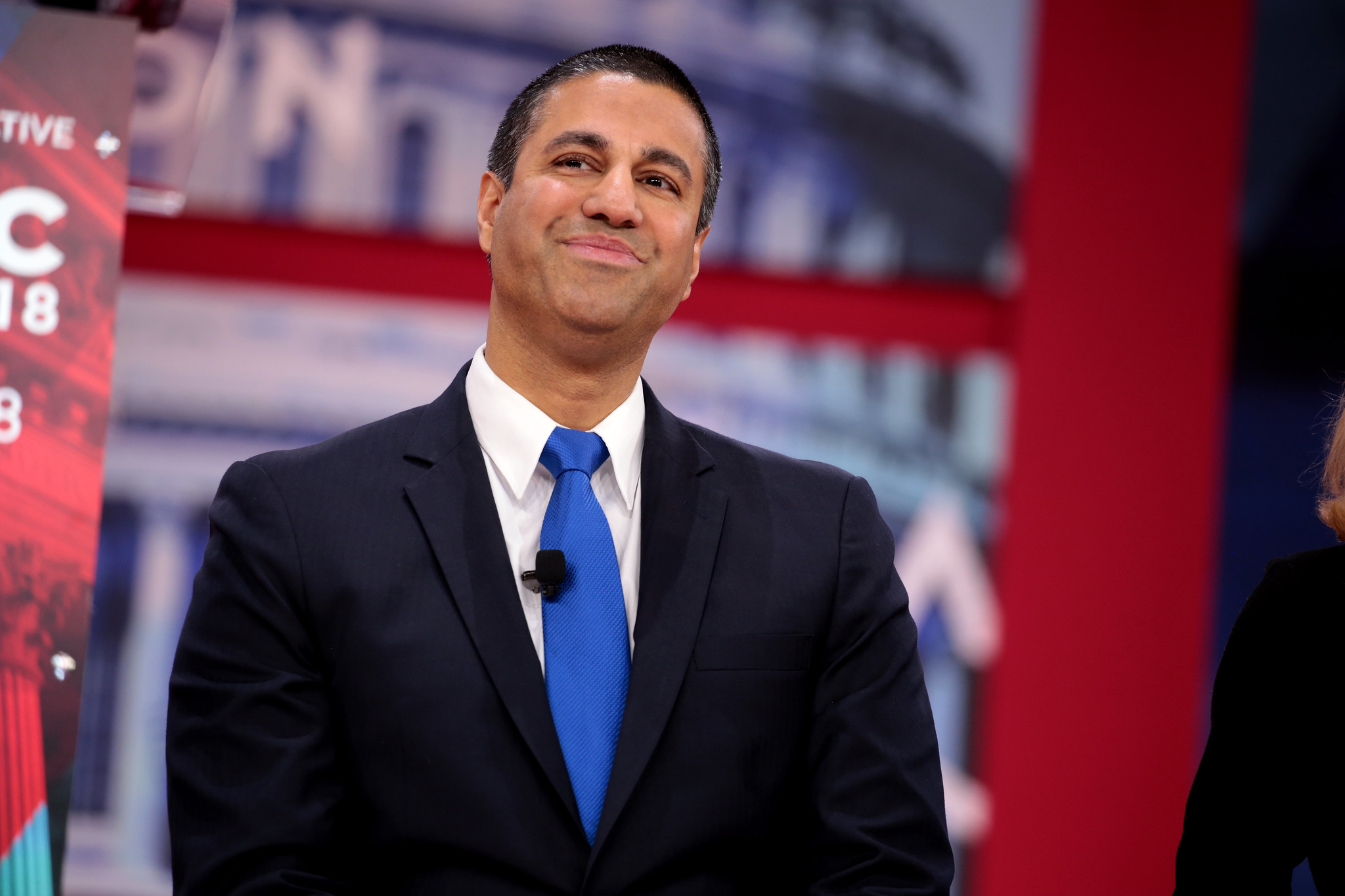Against All Common Sense, FCC Approves T-Mobile-Sprint Merger

Credit to Author: Karl Bode| Date: Tue, 05 Nov 2019 19:30:44 +0000
The FCC today finalized its approval of T-Mobile’s $26 billion dollar merger with Sprint, a megadeal that most objective data suggests will result in higher prices, fewer jobs, and even worse service from one of the most disliked industries in America.
In its finalized order confirming a 3-2 vote along partisan lines, the FCC insists that the deal will result in amazing benefits for American consumers, ranging from accelerated deployment of fifth-generation (5G) wireless networks, to “enhanced competition” in the wake of the deal.
“It would bring the benefits of the next generation of wireless technology to American consumers and advance American leadership in 5G,” FCC boss Ajit Pai said in a statement. “It would help millions in rural America benefit from high-speed 5G mobile broadband service…and it would promote competition.”
History and Pai’s fellow Commissioners tell a decidedly different story.
In a statement, FCC Commissioner Jessica Rosenworcel warned that mindless consolidation has a proven track record of making things worse for US consumers, not better.
“We’ve all seen what happens when market concentration increases following a merger,” Rosenworcel said. “A condensed airline industry brought us baggage fees and smaller seats, even as the price of fuel fell. A condensed pharmaceutical industry has led to a handful of drug companies raising the prices of lifesaving medications, taking advantage of those struggling with illness. There’s no reason to think the mobile-phone industry will be different.”
The merger would eliminate one of just four major wireless carriers in the States. Historically, this shift from four to three wireless competitors doesn’t work out well for consumers; both Ireland and Canada allowed similar mergers and the result was higher prices—not great news for US consumers who already pay some of the highest rates in the world for mobile data.
Contrary to T-Mobile’s claims, Wall Street analysts have also predicted that the merger could eliminate anywhere between 10,000 and 20,000 jobs as redundant retail, support, and middle management positions are inevitably eliminated over the next five years. Unions claim the merger could eliminate as many as 30,000 positions over time.
“In the short term, this merger will result in the loss of potentially thousands of jobs,” new FCC Commissioner Geoffrey Starks said in a dissenting opinion. “In the long term, it will establish a market of three giant wireless carriers with every incentive to divide up the market, increase prices, and compete only for the most lucrative customers.”
The FCC’s solution to this problem is a complicated arrangement that offloads some T-Mobile spectrum and Sprint’s prepaid brand (Boost Mobile) to satellite TV provider Dish Network. And while the goal is to eventually cobble together a replacement fourth carrier years from now, antitrust experts have warned the plan isn’t likely to actually work.
History is filled with telecom giants who make massive impressive promises pre-merger, only to ignore those promises when the ink is dry. From AT&T’s 2006 merger with BellSouth to Comcast’s 2011 merger with NBC Universal, the result of this mindless consolidation is obvious to any US consumer that interacts with these lumbering, apathetic giants on a daily basis.
Realizing consolidation would harm the wireless sector, regulators blocked AT&T’s attempted acquisition of T-Mobile in 2011, and blocked an attempted merger between Sprint and T-Mobile in 2014.
What’s different this time around? T-Mobile is taking advantage of the Trump administration’s decision to effectively let the telecom sector do whatever it wants, most recently reflected by the FCC’s decision to neuter itself (and popular net neutrality rules) at industry behest.
T-Mobile has engaged in a full court press to gain approval of the deal. That includes not only dramatically ramping up its patronage of Trump’s DC hotel, but the hiring of former FCC officials ranging from Mignon Clyburn to Robert McDowell to lobby on T-Mobile’s behalf.
Gigi Sohn, a former lawyer for the FCC, told Motherboard in a statement that the FCC’s majority approved the merger back in May before even seeing staff analysis, suggesting an agency that’s little more than a rubber stamp for the industry’s biggest players.
“The FCC majority prejudged the merits of this merger two months before the Justice Department found the combination of T-Mobile and Sprint to be anticompetitive and required the creation of a new fourth competitor to pass legal muster,” she said.
That said, Sohn noted that even with DOJ and FCC approval, the deal still faces a lawsuit by a bipartisan coalition of more than a dozen state attorneys general, who have argued that the merger, just like past iterations of the deal, is most decidedly not in the public interest.
This article originally appeared on VICE US.